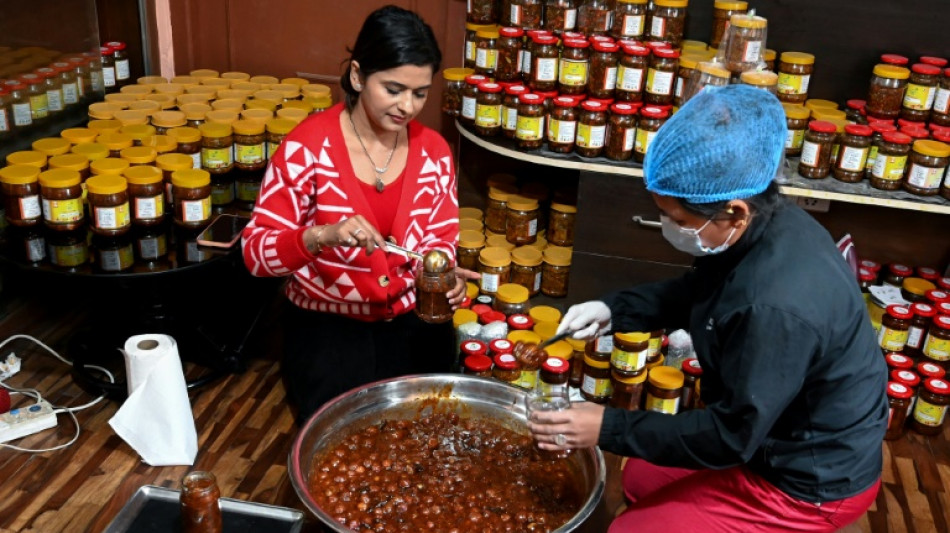
-
 India-Pakistan: Hottest ticket in cricket sparks T20 World Cup fever
India-Pakistan: Hottest ticket in cricket sparks T20 World Cup fever
-
Cross-country king Klaebo equals Winter Olympics record with eighth gold

-
 Ukraine's Heraskevych appeals to CAS over Olympic ban as Malinin eyes second gold
Ukraine's Heraskevych appeals to CAS over Olympic ban as Malinin eyes second gold
-
Stocks mostly drop after Wall Street slide
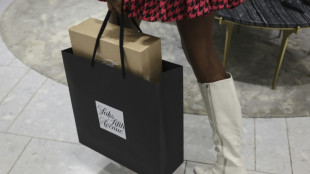
-
 Sophie Adenot, the second French woman to fly to space
Sophie Adenot, the second French woman to fly to space
-
Alleged rape victim of Norway princess's son says she took sleeping pills

-
 Activist group Palestine Action wins legal challenge against UK ban
Activist group Palestine Action wins legal challenge against UK ban
-
Driven by Dhoni, Pakistan's X-factor tweaker Tariq targets India

-
 Davidson set to make history as Ireland seek to rebound against Italy
Davidson set to make history as Ireland seek to rebound against Italy
-
Europe defends NATO, US ties at security gathering
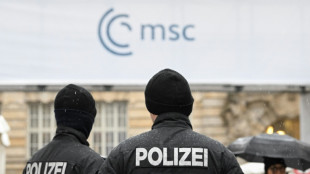
-
 China's fireworks heartland faces fizzling Lunar New Year sales
China's fireworks heartland faces fizzling Lunar New Year sales
-
Bangladesh's Yunus 'banker to the poor', pushing democratic reform
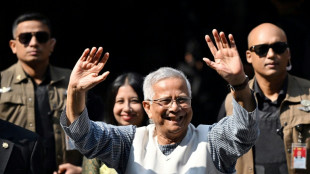
-
 Cracknell given Six Nations debut as Wales make changes for France
Cracknell given Six Nations debut as Wales make changes for France
-
L'Oreal shares sink as sales miss forecasts

-
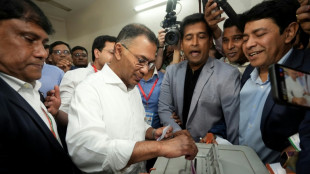 Bangladesh nationalists celebrate landslide win, Islamists cry foul
Bangladesh nationalists celebrate landslide win, Islamists cry foul
-
Thai PM agrees coalition with Thaksin-backed party
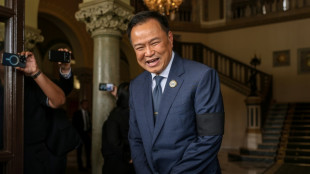
-
 Zimbabwe pull off shock win over Australia at T20 World Cup
Zimbabwe pull off shock win over Australia at T20 World Cup
-
Merz, Macron to address first day of Munich security meet
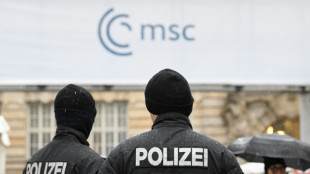
-
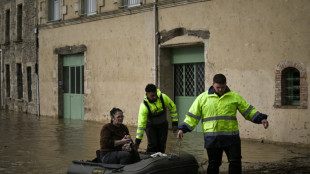 Three dead, many without power after storm lashes France and Spain
Three dead, many without power after storm lashes France and Spain
-
Bennett half-century as Zimbabwe make 169-2 against Australia
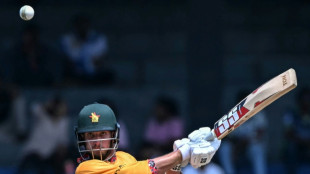
-
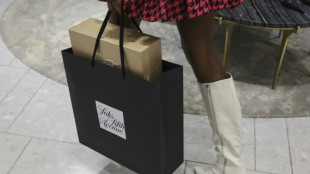 Asian stocks track Wall St down as traders rethink tech bets
Asian stocks track Wall St down as traders rethink tech bets
-
'Weak by design' African Union gathers for summit
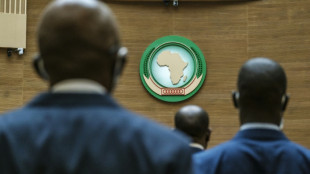
-
 Nigerian conservative city turns to online matchmaking for love
Nigerian conservative city turns to online matchmaking for love
-
Serb-zero: the 'iceman' seeking solace in extreme cold
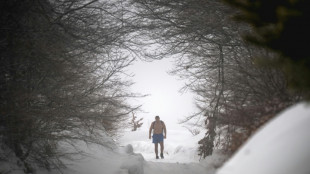
-
 LeBron James nabs another NBA milestone with triple-double in Lakers win
LeBron James nabs another NBA milestone with triple-double in Lakers win
-
Hundreds of thousands without power after storm lashes France
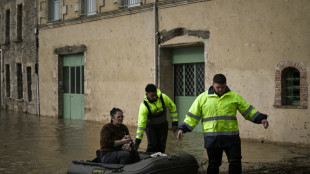
-
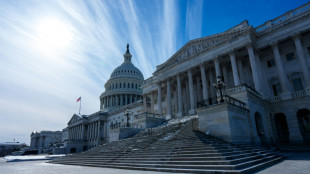 US Congress impasse over migrant crackdown set to trigger partial shutdown
US Congress impasse over migrant crackdown set to trigger partial shutdown
-
AI's bitter rivalry heads to Washington
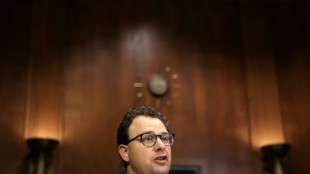
-
 South Korea hails 'miracle' Choi after teen's landmark Olympic gold
South Korea hails 'miracle' Choi after teen's landmark Olympic gold
-
England seek statement Six Nations win away to Scotland

-
 Trent return can help Arbeloa's Real Madrid move forward
Trent return can help Arbeloa's Real Madrid move forward
-
Battling Bremen braced for Bayern onslaught

-
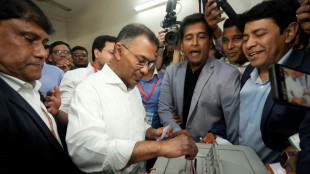 Bangladesh nationalists claim big election win, Islamists cry foul
Bangladesh nationalists claim big election win, Islamists cry foul
-
Tourists empty out of Cuba as US fuel blockade bites

-
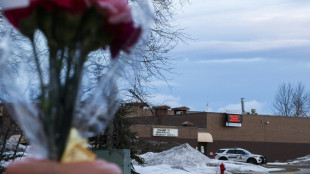 Tearful Canadian mother mourns daughter before Carney visits town shaken by killings
Tearful Canadian mother mourns daughter before Carney visits town shaken by killings
-
Italy dream of cricket 'in Rome, Milan and Bologna' after historic win

-
 Oscars museum dives into world of Miyazaki's 'Ponyo'
Oscars museum dives into world of Miyazaki's 'Ponyo'
-
Dieng powers Bucks over NBA champion Thunder

-
 Japan seizes Chinese fishing vessel, arrests captain
Japan seizes Chinese fishing vessel, arrests captain
-
Bangladesh political heir Tarique Rahman poised for PM
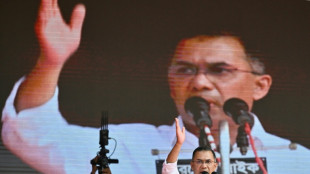
-
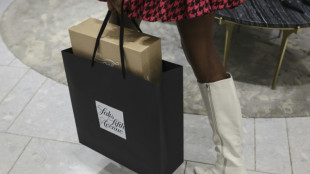 Asian stocks track Wall St down but AI shift tempers losses
Asian stocks track Wall St down but AI shift tempers losses
-
Bangladesh's BNP claim 'sweeping' election win
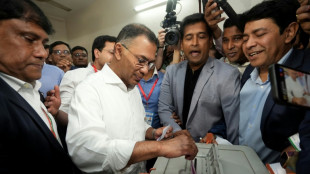
-
 Drones, sirens, army posters: How four years of war changed a Russian city
Drones, sirens, army posters: How four years of war changed a Russian city
-
Crowds flock to Istanbul's Museum of Innocence before TV adaptation

-
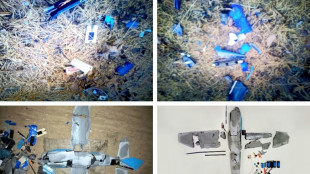 North Korea warns of 'terrible response' if South sends more drones
North Korea warns of 'terrible response' if South sends more drones
-
NASA crew set for flight to ISS
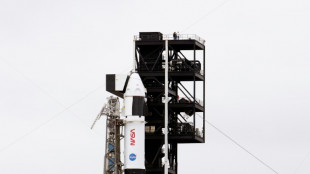
-
 'Punk wellness': China's stressed youth mix traditional medicine and cocktails
'Punk wellness': China's stressed youth mix traditional medicine and cocktails
-
Diplomacy, nukes and parades: what to watch at North Korea's next party congress
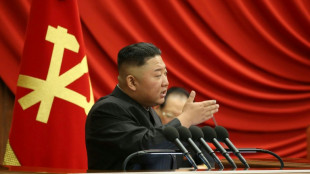
-
 Arsenal, Man City eye trophy haul, Macclesfield more FA Cup 'miracles'
Arsenal, Man City eye trophy haul, Macclesfield more FA Cup 'miracles'
-
Dreaming of glory at Rio's carnival, far from elite parades


Nepali TikTok influencers reel after sudden ban
Nepali influencer Anjana Aryal went from homemaker to entrepreneur by sharing recipes on TikTok, but her lucrative business collapsed last month when the Himalayan republic banned the Chinese-owned short video app.
Filming with her mobile phone in one hand and cooking with the other, Aryal rapidly became a social media star in Nepal last year, garnering millions of views from a following of nearly 600,000 people.
That all came to a sudden halt when Nepal banned TikTok to protect "social harmony", following similar restrictions imposed in other countries on concerns over data security, obscene content and its owner's alleged ties to the Chinese government.
"My life changed a lot because of TikTok, a lot," Aryal, 39, told AFP from her home in Kathmandu. "So many recognise me because of TikTok wherever I go."
She earned nearly $3,000 from endorsement deals just in October, more than double Nepal's average yearly income.
Encouraged by her audience, Aryal also started a business selling her own brand of pickles, which saw her inbox flooded with orders.
But since the ban, Aryal and other prominent Nepali content creators have seen their revenue streams dry up, jeopardising their livelihoods.
"People were earning, running businesses or just being entertained on TikTok. Everyone has been affected now and they don't know what to do," she said.
Owned by Beijing-based ByteDance, TikTok is one of the most popular social media platforms on the planet with more than one billion users.
Its explosive growth has given its content creators and influencers an immense audience, and its editing features and AI-powered algorithm have proved particularly attractive.
But the algorithm is opaque and often accused of putting users into content silos, and the platform has also been blamed for spreading disinformation.
It has faced intense scrutiny in the United States and other nations over user data security and the company's alleged ties to Beijing.
Multiple countries have sought to tighten controls on TikTok, and the platform has been banned in neighbouring India.
- 'Start from zero' -
Growing criticism of the app has worried influencers around the world.
Some, such as those in Pakistan, have lost income because of periodic government restrictions on TikTok.
Others in the United States have voiced fears to local media about losing thousands of dollars in income if bans are enforced.
Nepal's government justified its ban on the platform by accusing it of damaging the Himalayan republic's social fabric.
It came days before a huge rally called by a prominent businessman who was using TikTok to organise a campaign demanding the reinstatement of Nepal's monarchy.
Dozens of content creators staged a rally in Kathmandu demanding the ban be lifted last month.
Advocate Dinesh Tripathi, who is challenging the decision in court, said the ban was an attack on people's freedom of speech because the government was fearful of "dissenting voices".
"The state's first and foremost duty is to facilitate the people to exercise their rights and freedom, not prohibit it," he said.
Manish Adhikari, who uses TikTok to discuss cars and Nepali start-ups, said he had several endorsement deals scuttled by the ban.
"Brands started to call me... and I wondered if I was getting out of business, is my work going to stop?" Adhikari said.
Adhikari has shifted to Instagram but the views and followings are a fraction of his earlier audience.
"I lost all my audience because I was not as active on any other platform," he said. "Now I have to start from zero."
There are around 2.2 million TikTok users among Nepal's 30 million people, according to the Internet Service Providers Association.
But Monayac Karki, founder of Nepali influencer marketing agency Uptrendly, said TikTok's popularity had been rising exponentially.
He added that the ban had torpedoed a market with an estimated worth in excess of $5 million each year for advertisers and content creators, and which was set to grow rapidly.
"I really hope this ban is a temporary one and it will be lifted soon," he said.
T.Ward--AMWN